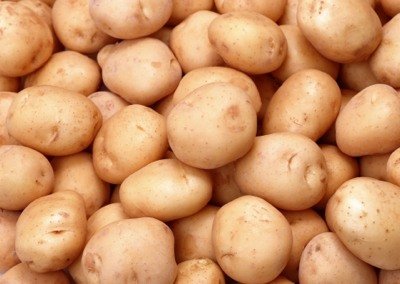East Africa is said to be the most recent destination for genetically modified (GM) potatoes, courtesy of the Lima, Peru-based research institute, the International Potato Center (CIP). The potato is reportedly being genetically engineered through cisgensis, a type of genetic modification wherein both donor and recipient are from the same species.

At the potato’s centre of origin in the Andes, where GM potatoes are banned, indigenous farmers, African farmers and civil society are frowning at the idea.
On February 28, 2020, an international gathering in Cusco, Peru organised by Asociación ANDES, Parque de le Papa (a community-led protected agroecological region known as the Potato Park), the African Centre for Biodiversity and Swift Foundation heard how the GM potato for Africa is otherwise being referred to as a philanthropic effort to stop the fungal disease, the late potato blight.
But the CIP’s GM potato is said to include genes synthesised from digital sequence information (DSI) taken from Genbank, the international DSI database.
“The genes are from potato relatives that were collected many years ago and the rights to those genes are not clear. Such situations of misuse of DSI are the subject of major international debate. If African farmers are essentially tricked into adopting this DSI-derived GM potato, CIP will create a situation harmful to the interests of African and Andean small farmers, whose knowledge and resources are threatened by the new kinds of biopiracy enabled by DSI,” participants submitted.
With attendees convinced that the GM potato is “a narrow and short-sighted technological fix” that is inappropriate for smallholder farmers, the workshop resulted in the formation of an Andes-Africa alliance against the cultivation of GM potato in Africa.
“For Andean farmers late potato blight is nothing new,” says Lino Mamani, traditional gene bank curator of the Potato Park in Cusco.
“We have lived with it for thousands of years. Despite late blight, we have the greatest potato diversity that can found be anywhere in the world.” On controlling disease, “The key is diversity, when diversity shrinks, the Phytophthora strains multiply,” Mamani adds, referring to the blight fungus by its scientific name.
Ricardo Pacco of Asociación ANDES notes that late potato blight is far from being a uniquely African problem.
“Potato blight is endemic here in the Andes and elsewhere, so the picture of small farmers in Uganda and Rwanda clamouring for GM potato to save them from a centuries’ old problem that is managed without GM elsewhere sounds like a false and contrived imperialist prank,” says Pacco. “We know that GMOs are a fad, we know that they are false solutions.”
Alejandro Argumedo, Andes Amazon lead for the Swift Foundation, appears disturbed by the role that CIP is playing in pushing GM potatoes in Africa.
“GM potatoes are banned in Peru, so why is CIP trying a potato in Africa that would be illegal in its home country? CIP should be cultivating good relationships with the Andean indigenous stewards of potato diversity, rather than encouraging further corporate appropriation of potato by supporting the cultivation of a risky GM technology. Andean indigenous peoples created the potato and conserve its diversity in their fields. They are key to the future of potato, and to see CIP undermining their rights is something that must be condemned.”
Country Coordinator of PELUM Rwanda, Johnson Mwebaze, comments: “Rwandan farmers work plots that are an average of 0.5 hectares – 80% are under one hectare. Most are on hillsides, and less than 5% are irrigated, making them ill-suited for input-intensive agriculture. Reports of high yields from the GM potato are based on trials under wildly unrealistic conditions, at least for the average resource constrained Rwandan farmer.”
Ugandan Lawyer Barbara Ntambirweki, says: “We are outraged that Africa could be tricked into cultivating a DSI-derived GM potato, which could pave the way for the theft of the traditional knowledge and resources of indigenous and peasant farmers in the Andes.”
African Centre for Biodiversity Director, Mariam Mayet, who has participated in various biodiversity related international negotiations, states: “The disagreement over benefit sharing for DSI caused the collapse of a six-year Plant Treaty (the ITPGRFA) negotiation aimed at overhauling the Treaty’s malfunctioning benefit sharing system. DSI continues to be a major site of controversy on the agenda of the Convention on Biological Diversity. It is certainly mischievous of the CIP to be pushing a DSI-derived potato into Africa.”
The Andes-Africa Alliance is composed of indigenous peoples and small farmer groups representing thousands of potato producers and guardians, civil society organisations, and supporters.
According to the Alliance, it rejects genetically engineered crops as a solution to food challenges and rejects corporate dominated food and seed systems, particularly as alleged solutions to the challenges of climate change.
